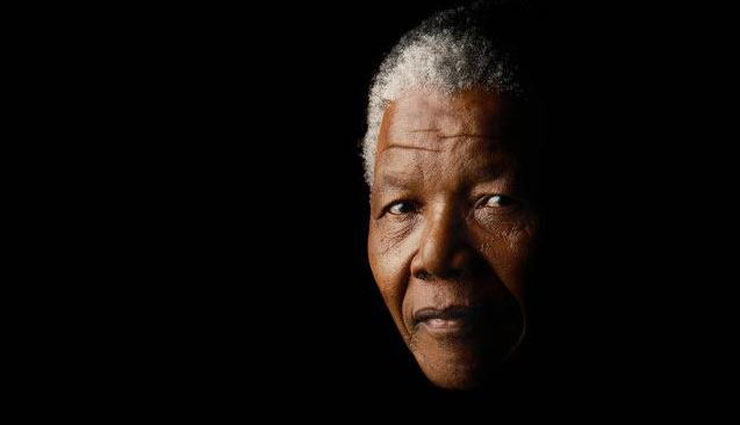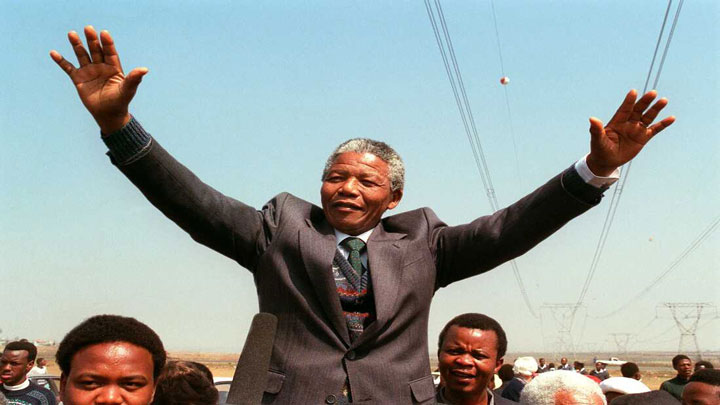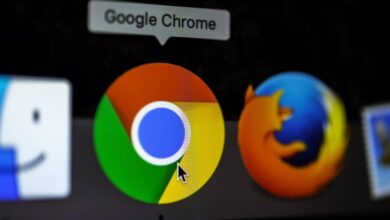Nelson Mandela; Biography, books, lasting words

Nelson Mandela was one of the great and inspiring leaders of the world. Many of you must have heard his name. The first black president of South Africa and the one who ended apartheid. In this article, after looking at the biography of Nelson Mandela and his legacy, we introduce four lasting works of Nelson Mandela’s books. In the end, we have collected 10 sentences of his endless words for you.
Who is Nelson Mandela?
Nelson Rolihlaha Mandela was born on July 18, 1918 (1297 AD) in Madiba village. His tribe was one of the black tribes east of Cape Town. His father was the head of the Madiba tribe and an adviser to the king of the Tembo people. He was 12 years old when his father died, and Jongitaba, the ruler of the Tembo people, took over his care. Nelson was the name chosen by the primary school teacher, as it was customary in South Africa for every child to have a Christian name in addition to the local name.
He gave up the headship of the tribe to become a lawyer. He completed his preparatory education at the College for Young Negroes and then studied law at Whitward Stand University. From the beginning, Nelson had shown his right-seeking spirit by participating in student protests against discriminatory laws.
Mandela’s party activities
In 1944, Mandela joined the African National Congress, a liberal black party. He quickly climbed the party ranks, and as an active member, he took the leadership of the party’s youth wing. The ultimate goal of the party was the equality of blacks and whites. At that time, the ruling system of South Africa was made up of the white minority. This system allowed a lot of oppression to the indigenous inhabitants of South Africa with discriminatory laws, and the racist policies of the political system ruling the country were known as apartheid.
Mandela stood up against these policies in the form of party activities. In 1952, Mandela founded the first black law office with his friend and party leader, Oliver Tambo. The purpose of this office was to help blacks and fight the racist laws passed in 1948. The same year, Nelson Mandela was critical in launching the civil resistance campaign against the passport law. According to this law, blacks had to carry their identification documents when they were in places that were reserved for whites.
Mandela traveled nationwide to attract people’s support for a civil and non-violent struggle against apartheid. In 1955, he contributed to writing the Freedom Charter, which set out the ideal of a democracy without discrimination in South Africa.
Mandela’s anti-apartheid activities made him the target of then-government officials. In 1952, severe restrictions were placed on his travel, public participation, and speaking engagements. In December 1956, he was arrested along with 100 people on charges of treason, although he was later acquitted.
Rivonia’s underground activities and trial
In 1960, South African police in the Sharpeville district killed 69 unarmed black protesters during their peaceful protest. This led to the declaration of a national emergency and banning of the South African National Congress. Mandela and thousands of other black and white activists were also arrested. This event had a tremendous impact on Mandela’s attitude; He abandoned the policies of non-violent struggle and traveled abroad in 1962 to learn the methods of guerrilla warfare and sabotage. After his return, with his associates’ help, Mandela founded the military wing of the South African National Congress, known as the “Spear of the Nation.” Within a short period of his activity in this new field, Mandela was identified, arrested, and sentenced to 5 years in prison.
In October 1963, police and security forces raided the Rivonia neighborhood of Johannesburg and discovered a large quantity of weapons and sabotage equipment from the party’s military wing. As a result, Mandela and his companions were put on trial again, a practice known as the Rivonia Trial because of Mandela’s famous speech. During the trial, he addressed the judges, acknowledging the truth of his accusations: “I have fought against white supremacy.” I have fought against black supremacy. I have cherished the idea of a free and democratic society where everyone lives alongside others with equal opportunities. This is the ideal that I live to achieve. But if necessary, this is an ideal for which I am ready to sacrifice my life.”
Ultimately, Mandela was sentenced to life in prison. Along with other black fighters, he was sent to small Robben Island to serve his sentence.
Years of prison and freedom
Mandela was imprisoned on Robben Island from 1964 to 1982. While in prison, Mandela reflected a lot on the ideal of democracy in South Africa. During this period, he returned to the idea of non-violent struggle and made it the core of his struggle. During this period, the struggle against the apartheid regime had turned from a national movement into a global uprising. Mandela became the face and symbol of the struggle, and his name was spoken worldwide. As the regime weakened in the 1980s, Mandela was transferred to Victor Worcester Prison near Paarl in 1988 after contracting tuberculosis. At the same time, talks about political reforms and a way out of the current state of society were going on between him and the envoys of the then president, Botha. Before Mandela’s complete release from captivity, the government offered him parole 3 times, which Mandela refused. Finally, Mandela was released on February 11, 1990, after 26 years of imprisonment.
Presidency and retirement
After his release, Mandela became the deputy leader of the South African National Congress and continued negotiations with de Klerk, the last president of the apartheid regime. With his cooperation, Mandela ended the apartheid system and, in a peaceful and non-violent process, managed to hold the first national vote with equal participation of all sections of the society.
Finally, in 1994, in the first free and inclusive elections, Mandela became the first black president of South Africa by the majority of the people. Of course, this was not the end. He established the Truth and Reconciliation Commission to heal the wounds of society. This commission had the duty to investigate cases of human rights violations by agents of the previous regime and to try to satisfy the plaintiffs. Mandela was one of the first to forgive those who had wronged him to set an example for others in his country. Also, to eliminate discrimination, Mandela launched various economic, educational, and cultural campaigns to improve the standard of living and welfare of the society, especially the blacks. In 1996, he oversaw the amendment of the Constitution, a covenant that ensured the maintenance of inclusive democracy in South Africa.
Nelson Mandela, who saw his political mission as finished, did not run for the second round. After retiring from political activities, he devoted the remaining years of his life to cultural, educational, and social activities. Now a symbolic capital and a prominent figure in the world, Mandela tried to present the experiences of years of struggle for freedom to other activists in this field. After his presidency, he founded the Nelson Mandela Foundation, which continues to operate after he died in 2013.
Mandela’s legacy
The vigilance of Mandela and other political leaders of the society played an essential role in the slow evolution of the society towards democracy. Over the decades, there have been many conflicts between the parties, and the possibility of civil war was high. On the one hand, the whites saw themselves in danger. On the other hand, blacks suffered from the wounds of years of discrimination. Mandela’s art was to prevent violent confrontation and civil war by intelligently negotiating with the other side. This was the most excellent service that Mandela gave to the South African society. Of course, Mandela’s legacy is not limited to this act. After the presidency, he continued educational, social, and cultural activities to create peace, social justice, and freedom. It was for these services that, in 1993, he and de Klerk won the Nobel Peace Prize.
The United Nations has named Mandela’s birthday as Nelson Mandela International Day to promote his legacy.
Nelson Mandela’s books
In addition to political and social activities, Mandela also wrote books. Which we will introduce below.
1. The difficult road to freedom: Memoirs of Nelson Mandela
This autobiography, Nelson Mandela’s most famous work, has been translated into hundreds of languages. In this book, Mandela describes his ups and downs from birth to the presidency.
Many of Nelson Mandela’s quotes on social networks are taken from this book.
2. Conversations with Myself
This book collects a collection of Mandela’s speeches, correspondence, diaries, and interviews.
3. Long Walk to Freedom: The Autobiography of Nelson Mandela
This book recorded letters and private conversations, and some prison memories were written.
4. HOW FAR WE SLAVES HAVE COME?
This brief work discusses Mandela and Fidel Castro’s views on Castro’s current position.
quotes from Nelson Mandela’s words
Anyone can improve their circumstances and succeed if they dedicate enough will and motivation to their work.
It always seems impossible until it happens.
Guide behind the scenes. Let others feel that their work is essential. Leaders must be ready to sacrifice everything for the freedom of their people.
Anger and resentment are like drinking poison that we expect to kill our enemies.
I like friends who have independent thoughts. They teach me to look at things from a new angle.
Money does not bring success. Freedom to acquire wealth brings success.
I am deeply optimistic. Part of my optimism is related to my outlook and forward steps. Humanity was often shaken, but I could not give up and despair. That way meant failure and death for me.
Education is the most effective weapon to change the world.
Don’t judge me by my victories. Judge me by the times I’ve failed and gotten back up.








